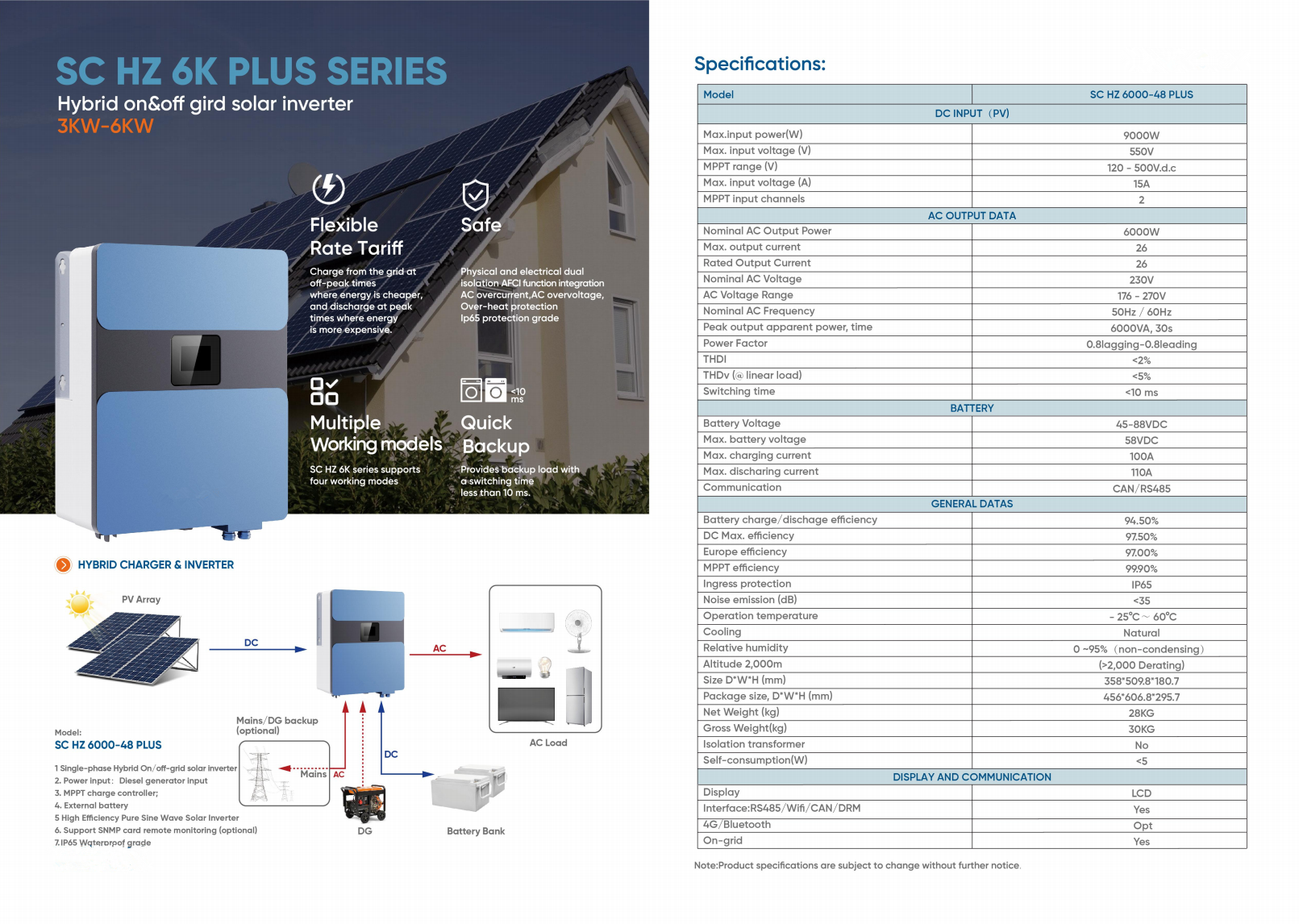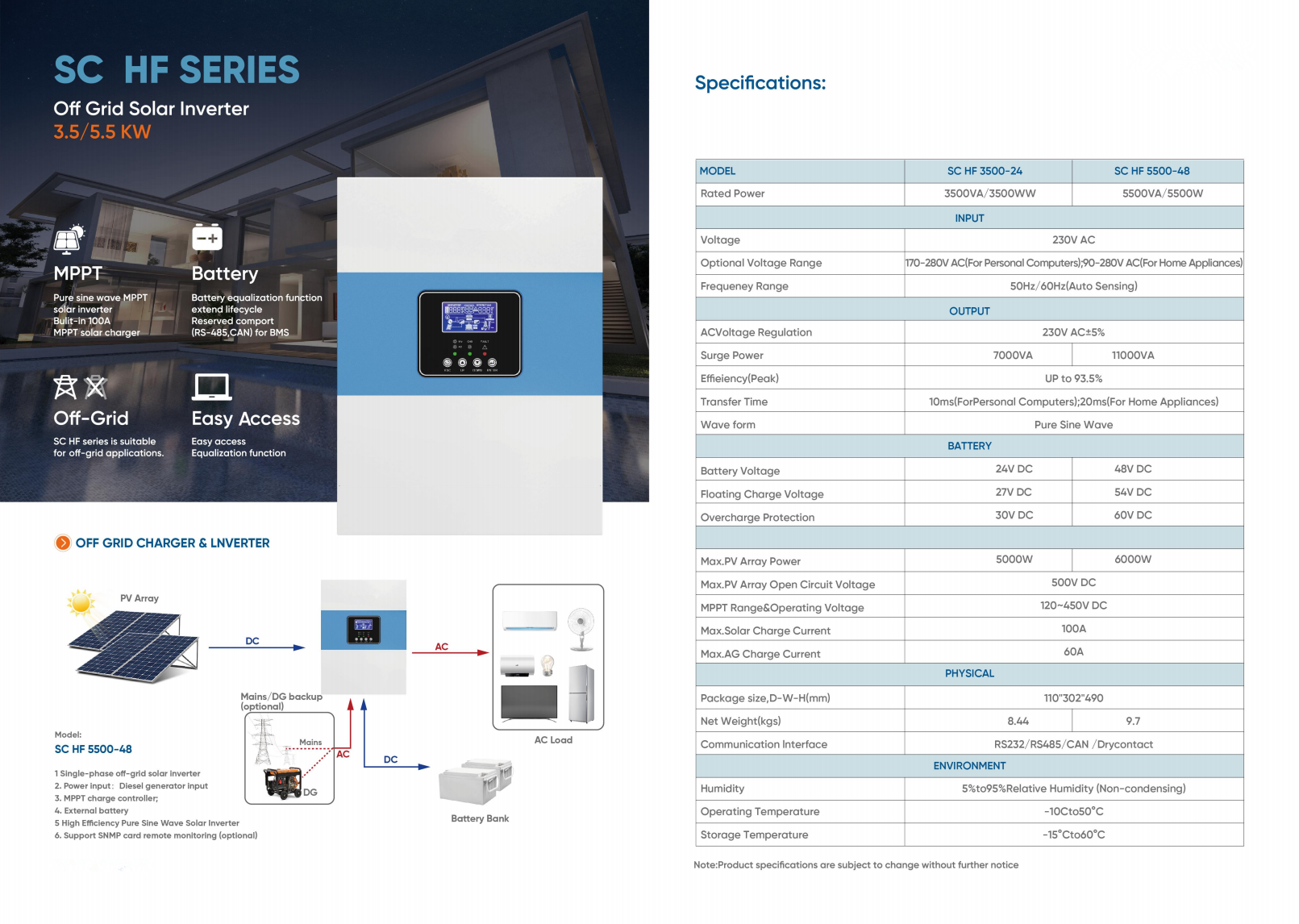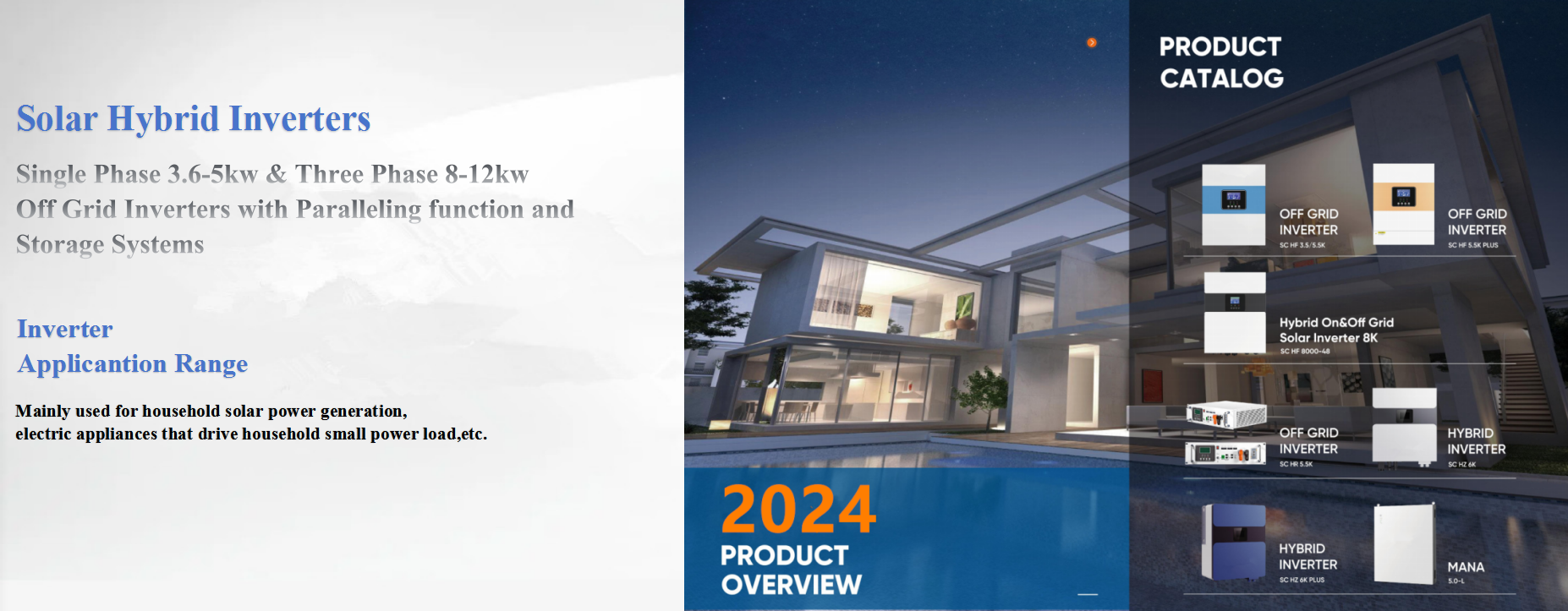Difference between Hybrid On-Grid and Off-Grid Solar Inverter
Three powerful solar inverters: Hybrid, On-Grid, and Off Grid inverters
Three powerful solar inverters are available in the market: Hybrid, On-Grid, and Off Grid inverters. However, which one of these is the best ? And which option should you consider for my home ? If you are also a part of that large group of people searching for answers to similar questions, please keep on reading below.
The forthcoming content is divided into various pieces for your better understanding.
Hybrid solar inverter

A hybrid solar inverter is an exciting device. It is the combination of a solar and battery inverter altogether. Hence, the user can manage the power supply from solar batteries, solar panels, or the utility grid at a single time.
Advantages of hybrid systems
● Backup is provided: the first and foremost benefit of obtaining a hybrid system is that it draws all powered access from the grid if the energy extracted from the sun is insufficient. In addition, storage batteries also grant backups in the case of grid failure. Hence what you get is a constant power supply in all situations.
● Optimal utilization of resources: as the system maintains a direct connection with the battery, the optimal utilization of renewable resources is ensured.
● Can function in distinguished ways: most systems are programmed to work in diverse modes. That means it can serve as a typical solar inverter, storing the excess solar energy during the day and spending it at night. Or you can switch on the backup mode to use it as a solar inverter when the grid is connected. It automatically switches off to backup power mode during a grid outage. Finally, you can use the inverter as an off-grid inverter if you need to; change the settings.
Disadvantage of hybrid systems
● The only con of the hybrid inverter is its high installation cost.
● Although the system doesn’t need constant maintenance, installation costs three times more than any other solar system.
Off-grid solar inverter

Off Grid solar inverters do not maintain a direct connection to the utility grid. However, they operate independently. And since the system isn’t connected to the grid, there is high battery storage. It is specially designed to fulfill all the energy requirements of the installation area.
Advantages of the off-grid solar system
● Money efficiency: one of the most incredible benefits of obtaining a hybrid system is its cost efficiency. The investor does not demand maintenance frequently. As a result, you are free from spending tons of money on servicing chores.
● Energy independence: this solar system grants you complete freedom from the utility company.
● Power remote areas: The solar inverter allows you to handle remote power supply where enough energy isn’t present.
● Most energy efficient choice: with the energy consciousness, which means the system helps you generate your power, sourcing the hyper-local level at its utmost.
Disadvantages of the off-grid solar system
● Limited energy storage: off-grid hybrid solar inverter allows for minted storage.
● No backup: the off-grid solar inverters cannot utilize the grid energy.
On-grid solar inverter
Also known as the grid-tied solar system, the on-grid solar inverters are the most common systems used for residential and commercial usage. It does not need additional batteries and is directly connected to the utility grid. Unlike other forms of inverters that increase the cost by requiring huge energy backups when the sun is not producing enough energy, the on-grid solar system is pretty cost-efficient.
Advantages of the on-grid solar systems
● Massive reduction in electricity bills: the on-grid hybrid solar inverter provides you the ease to the surplus electricity bills only, reducing a subsequent amount every month.
● Easy to maintain: on solar grid system eliminates all batteries allowing you to enjoy easy maintenance.
● Synchronization with other power resources: these types of solar systems synchronize with the diesel generators on site, which is essential if grid power is unavailable
● Reducing carbon footprint: It generates renewable clean energy that does not produce greenhouse gasses.
● Earn money from the government: some of the world’s developed countries, such as the United Kingdom and the US, count you as an eligible individual for financial incentives. That means you get a subsequent discount on deed-in tariffs and other subsidies.
● Increase the value of your house: as on-grid solar inverters help to minimize monthly expenses, they can be a great way to enhance your house value for commercial purposes.
Disadvantages of on-grid solar systems
● Upfront cost: installation cost is pretty high for such inverters. Nevertheless, it gets dropped to a more significant extent after you use it.
● Dependency on the grid: the user might face a power outage if obtaining an on-grid system without makeup power. In such cases, the inverters fail to supply power for longer than 1 or 2 hours.
● Maintenance can be a timing task: the solar panels need regular maintenance. That means you may need to clean them regularly to maintain efficiency.
● Doesn’t suit all homes: unlike the hybrid solar inverter 3 phase, such panels need a sunny location to get installed.













































































































